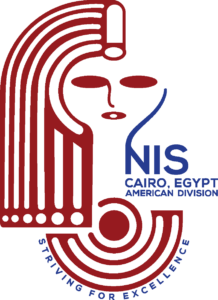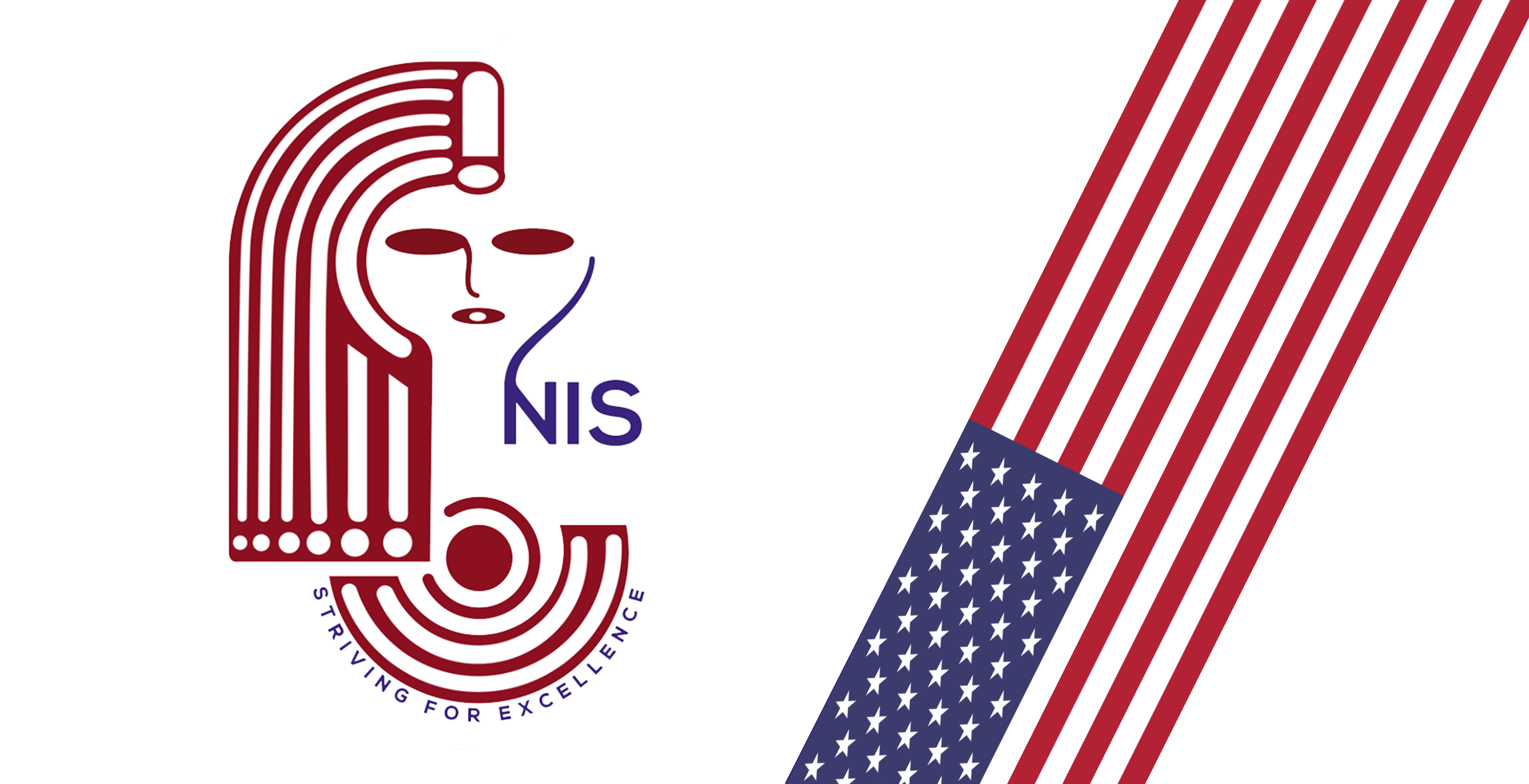The general goals of the English curriculum at NAIS are to foster language skills—including writing, reading, speaking skills, and critical thinking skills—in the areas of grammar, analysis, problem solving, self-expression, and comprehension.
Grade One
Reading is the priority in first grade. Students are immersed in a print-rich environment to facilitate development of oral language skills, vocabulary, reading comprehension, and the awareness of print materials as sources of information and enjoyment. They use listening and speaking skills to participate in classroom discussions, use a variety of strategies to read new words, and develop an understanding of character, setting, main idea, and story sequence through examining a variety of texts. They increase vocabulary and comprehension strategies by reading age-appropriate materials across the curriculum. Students begin to communicate ideas in writing and become independent readers by the end of the year.
Grade Two
Reading continues to be the highest priority in second grade. Students participate in classroom discussions, utilize a combination of reading and comprehension strategies, and further increase vocabulary. They identify main ideas, make and confirm predictions, and write stories, letters, and simple explanations. Simple grammatical principles are applied to writing, and information is located using reference materials. By the end of the year, students will read with fluency and expression.
Grade Three
The emphasis in third grade is on learning about words, reading with fluency and expression, and developing comprehension strategies. Effective communication skills will be practiced through the use of group activities and brief oral reports. Students will plan, draft, revise, and edit stories, simple explanations, and short reports. In addition, information from print and non-print sources will be used and gathered. The student will write legibly by the end of the year.
Grade Four
Previously developed reading and writing skills provide, in fourth grade, the foundation for an increased emphasis on content throughout the curriculum. Students use text organizers, summarize information, formulate questions, and draw conclusions to demonstrate reading comprehension. They read classic and contemporary literature selections by a variety of authors; they also continue to increase communication skills in large-and small-group settings. The students plan, draft, revise, and edit narratives and explanations. Information resources and word references will be used routinely while writing.
Grade Five
In fifth grade, students will read texts in all subjects and will acquire information enabling them to answer questions, generate hypothesis, make inferences, support opinions, confirm predictions, compare and contrast relationships, and formulate conclusions. Literary appreciation will continue. Presentations will be prepared utilizing online, print, and media resources to prepare presentations to enhance communications and learning skills. Students will continue to plan, draft, revise, and edit writings to describe, to entertain, and to explain.
Grade Six
The student will be an active participant in classroom discussions, will present personal opinions, understand different viewpoints, distinguish between fact and opinion, and analyze the effectiveness of group communication. Word origins will be studied and vocabulary development will continue. A variety of fiction and nonfiction works, including a significant number of classic works, will be read for appreciation and comprehension. Students will plan, draft, revise, and edit narratives, descriptions, and explanations with attention to composition and style as well as sentence formation, usage, and mechanics. They will demonstrate correct use of language, and spelling. Reading, and writing will be used as tools for learning academic concepts, and technology will be used as appropriate.
Grade Seven
Oral communication skills will be developed further and the effects of verbal and nonverbal behaviors will be studied. Seventh grade students will continue to read a wide variety of fiction, nonfiction, and poetry while becoming more independent and analytical. Written composition skills—with special emphasis on word choice, organization, style, and grammar—will be increased. Written explanations utilizing informational writing and persuasive writing will be introduced. Students will study figurative language, vocabulary, and root affixes. The study of the impact of media on public opinion will be introduced. Proficiency in the use of print and electronic information resources will increase and students will learn how to cite reference sources. Correct use of language, spelling, and mechanics by applying grammatical conventions in writing and speaking will be demonstrated.
Grade Eight
Students learn and apply interviewing techniques, demonstrate correct use of language, spelling, and mechanics by applying grammatical conventions in writing and speaking, and plan, draft, revise, and edit writing, with emphasis on exposition and persuasion. Reading and writing skills are applied in all subjects and literature is responded to critically. Vocabulary development continues with special attention paid to connotations and figurative language as the student continues to develop an appreciation for literature through studying a wide variety of selections. Themes and main ideas will be inferred and cause and effect relationships will be interpreted. Students will become skillful interpreters of the persuasive strategies used in print and mass media.
HIGH SCHOOL ENGLISH CURRICULUM (Grades 9-12)
Grade 9: Language and Literature
In ninth grade English emphasis is placed on building vocabulary, exploring the writing process, and improving reading comprehension and written communication skills. Students will be exposed to a variety of literature genres and writing styles both classical and contemporary and will develop writing and analysis skills through practical daily activities. Reading, writing, and grammatical assignments along with team projects are frequent features of ninth grade English and should be expected by all students.
Grade 10: Language and Literature
Communication skills continue to be refined through writing, oral presentations, and practical daily activities. Special emphasis will be given to the writing process, including creative, expressive, and formal writing with particular concentration on the persuasive essay. A variety of literature genres and writing styles with a wide range of literary emphases will be studied. The student can expect frequent reading, writing, and grammatical assignments and plenty of team project work. In addition, SAT Preparation classes are given regularly in grades 10 and 11 to help students prepare for this vital test.
Grade 11: Language and American Literature
Using American Literature as a springboard, students will explore various authors, genres, and styles of both poetry and prose. The course is designed to develop the student’s analytical, comprehension, and analysis skills at a deeper level. While grammar is incorporated as part of the whole language process, greater emphasis will be given to writing, analysis, and communication skills. Students should expect frequent and comprehensive writing and analysis assignments along with team project work.
Grade 12: Language and British Literature
By exploring the various authors, genres, and styles of World writers of poetry and prose, students will further develop their analytical, comprehension, and analysis skills on an even deeper level. While grammar is incorporated as part of the whole language process, greater emphasis will be given to writing, analysis, and communication. Students should expect frequent and comprehensive writing and analysis assignments along with team project work.


